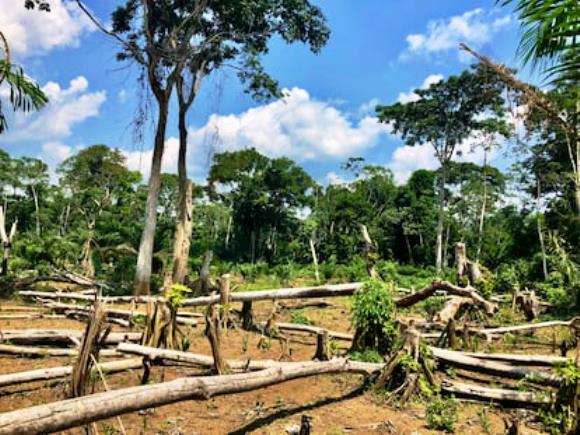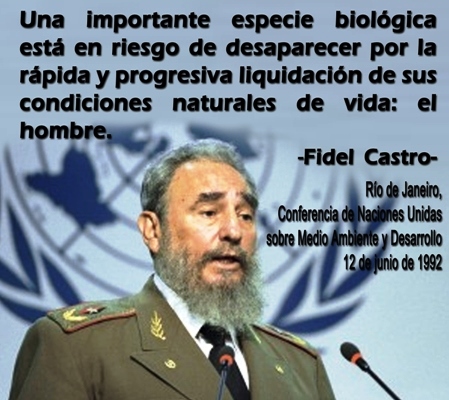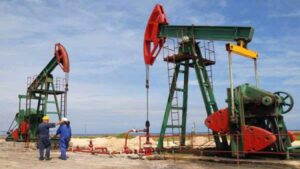«Tomorrow will be too late.»



«Tomorrow will be too late. This is how Fidel Castro’s speech was identified 32 years ago at the United Nations Conference on Environment and Development, to warn about the environmental crisis we are experiencing today.
On that day, June 12th, 1992, Fidel was the 15th speaker and, incredibly, the one who spent the least amount of time in his speech. In just five minutes, the historic leader of the Cuban Revolution said with direct and clear words what was happening in our common home due to excessive consumption and overexploitation of resources.
«They have poisoned the seas and rivers, they have polluted the air, they have weakened and perforated the ozone layer, they have saturated the atmosphere with gases that alter climatic conditions with catastrophic effects that we are already beginning to suffer.
«Forests are disappearing, deserts are spreading, billions of tons of fertile land end up in the sea every year. Numerous species become extinct.
«Tens of millions of men, women and children die every year in the Third World as a result of this, more than in each of the two world wars.»
More than three decades after those words, climate change is no longer a threat but a reality that threatens life on earth and the survival of the human species.
Thus, Fidel became the first world political leader to announce the future of nature, a scenario marked by human activities and the urgency of joining forces to reverse this scenario.
While the global temperature has increased by 1ºC, the ocean temperature has risen by 0.11ºC, which represents a survival risk for many species of plants and animals that serve as food and medicine, including fish and shellfish.
In the last 25 years, sea levels have risen twice as much as predicted; if this rate continues, in 70 years the homes of 200 million people, mostly residents of island states, will be below sea level.
To absorb the carbon emissions currently reaching the atmosphere and reach «net zero» by 2050, 1.6 billion hectares, or more than all the world’s croplands of new forests, are needed.
Fidel referred to this and more when he said on June 12th in Rio de Janeiro: «If humanity is to be saved from self-destruction, the wealth and technologies available on the planet must be better distributed.
«A just international economic order must be applied. Use all the science necessary for sustainable development without pollution. Pay off the ecological debt, not the foreign debt. Let hunger disappear, not man,» he emphasized.
The United Nations (UN), as an international forum for creating and negotiating agreements on global issues, has facilitated the approval of the United Nations Framework Convention on Climate Change; the Convention on Biological Diversity to combat desertification; the Declaration on the Principles of the Management, Conservation and Sustainable Development of All Types of Forests; the 2030 Agenda and the Sustainable Development Goals, in addition to the Kyoto Protocol, the Montreal Protocol, and the
Paris Agreement, among other treaties aimed at uniting governments, the population and business groups to face the climate crisis and its effects.
It also encourages the celebration of special days dedicated to the environment, forests, oceans, Mother Earth, wetlands, wildlife, water, energy, meteorology, migratory birds, bees, the fight against noise and smoking, and soil, to name just a few.
This raises public awareness of the importance of climate and its impact on the life forms of the animal and plant kingdom, in order to promote development without damaging the environment.
In Cuba, for example, State policies on environmental protection involve communities, social groups, companies and entities, whether State or not, in the application of different regulatory instruments.
It is a task that requires systematicity and constancy, since the low perception of risk, awareness and environmental education of a large part of the population generates difficulties and poor results in the implementation of some environmental policies and strategies.
One of the main problems being addressed at the national level is the recovery of degraded soils, whether due to erosion, compaction, salinization, poor drainage or acidification, among other factors.
To this is added the urgency of transforming the deteriorated communal hygiene of urban or rural settlements due to failures in technical services, aqueduct and sewage networks, in addition to the unstable collection of solid waste, which generates micro dumps and vector sources.
And all this brings another complication. The contamination of inland and marine waters, since most of these wastes, liquid or solid, end up in the rivers or in the water table, which have the sea as their final destination.
Cuba also faces prolonged periods of drought, the rise of the average sea level and, consequently, the advance of the salt wedge, together with the effects of deforestation, the loss of biological diversity and the deterioration of coastal areas.
It is precisely on this last problem that the State Plan to Confront Climate Change, known as Tarea Vida, includes a strategic action focused on reducing population density in low-lying areas and relocation of human settlements to higher regions, with the aim of reducing vulnerability to coastal flooding caused by extreme weather events.
A whole system based on the words of Fidel: «Stop selfishness, stop hegemonism, stop insensitivity, irresponsibility and deceit. Tomorrow it will be too late to do what we should have done long ago».
Written by Ana González.



